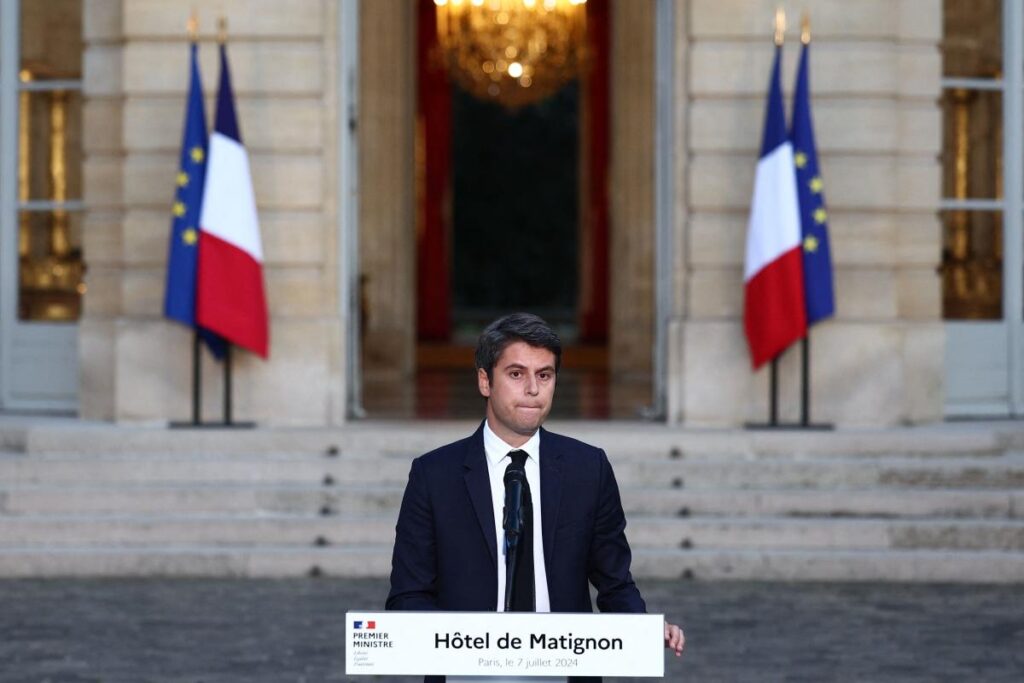Insights from The Guardian, Atlantic Council, Politico, Le Monde and BBC
The news
France is in a political impasse after a left-wing coalition defied expectations by defeating the far right in the latest round of snap elections but fell short of a majority.
The New Popular Front, a left-wing coalition formed last month to keep the far right out of power, won the most seats in parliament, followed by the president Emmanuel Macronthe centrists in second place, and Rassemblement National of Marine Le Pen and her allies in third place.
The resulting stalemate in parliament raises questions about France’s next step.
SIGNALS
Attal remains prime minister for the time being, but may face a motion of no confidence
Macron has asked Prime Minister Gabriel Attal, a member of the president’s party who offered his resignation after the results, to remain in his post. provisionalto “guarantee stability” as the country prepares to host the Olympic Games in less than three weeks. But Attal is likely to face a no-confidence vote from parliament as early as July 18, when the National Assembly holds its first session, Le Monde noted. A “no-confidence vote would have a good chance of being passed, given that the presidential coalition now has only 168 of the 577 seats, and it would lead to the immediate resignation of Attal’s governmentaccording to the newspaper.
Appointment of future prime minister a difficult choice for Macron
It is unclear whether Attal will remain in the role in the long term. Macron is not bound by the results of the election and could theoretically choose anyone to be prime minister, but custom dictates that he appoints someone from the party that wins the election. Macron “will have to choose a prime minister who will appoint a government whose first task will be to be strong enough to prevent fall prey to a motion of no confidence,” wrote former French cabinet minister Rama Yade for the Atlantic Council. It is possible that the left, in order to avoid huge differences of opinion within the incoming government, will choose a candidate from outside the political sphereaccording to Politico.
Coalition is a possibility, but parties have no history of cooperation
Unlike other European countries, France has little experience with a hung parliament: usually one party wins a clear majority in elections. A coalition will depend on the various willingness of parties to compromisewrote the Guardian’s Europe correspondent. The three opposing blocs have historically not worked together and differ on key issues from taxes to climate change. “It’s a nice idea on paper, but there’s a huge gap between what’s possible and what’s actually achievable,” Bertrand Mathieu, an expert in constitutional law at Sorbonne University, told the newspaper. “And the program could only provide for an absolute minimum.”







